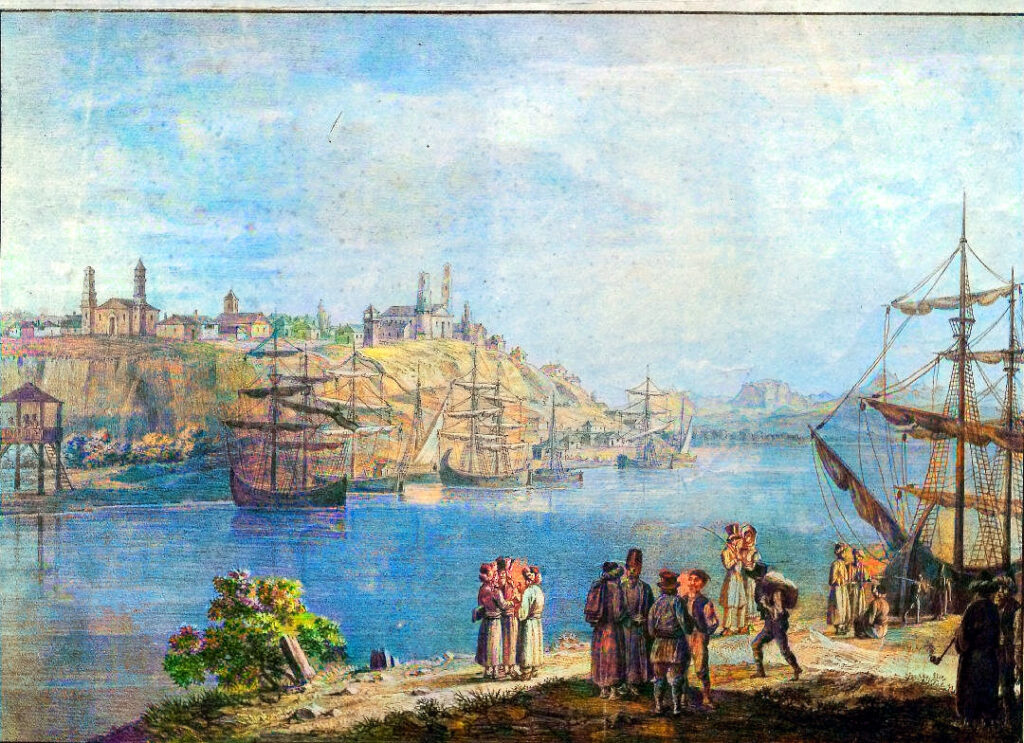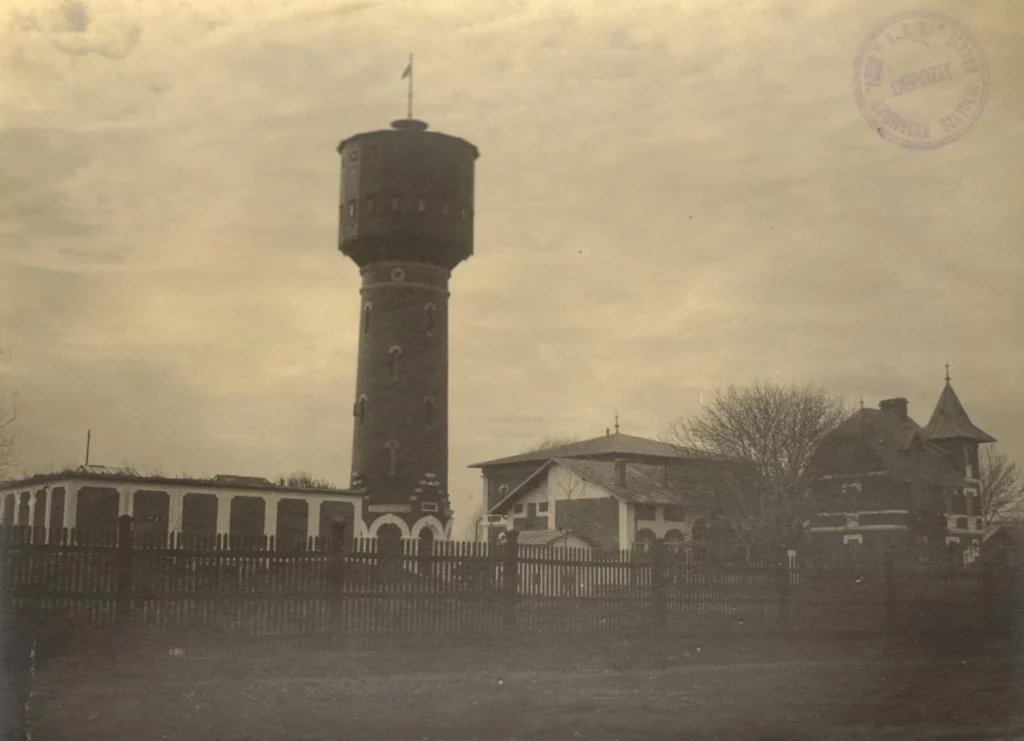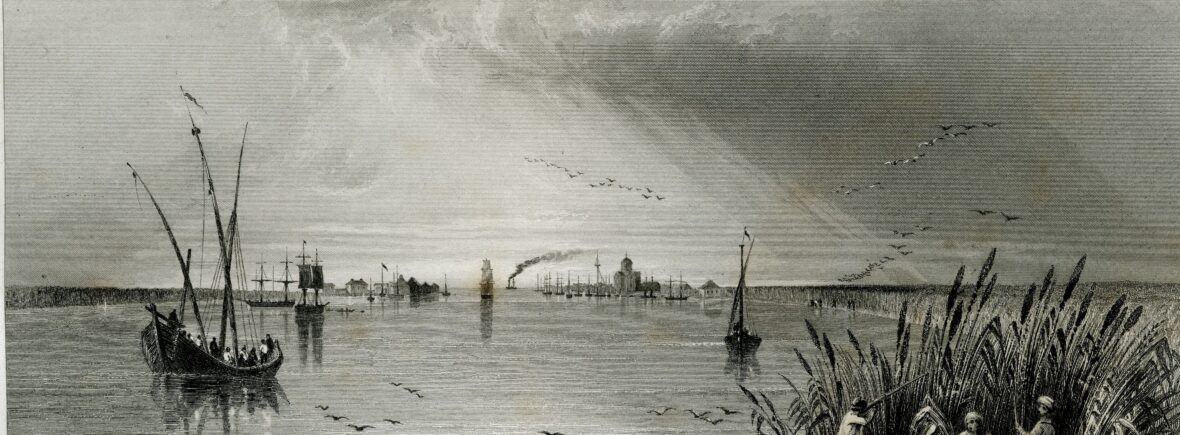2023
Constantin Ardeleanu has published the paper “Sănătate publică și comerț. Despre costul economic al sistemului carantinal de la Galați în perioada premergătoare Războiului Crimeii” (“Public Health and Trade. On the Economic Cost of the Quarantine System in Galați before the Crimean War”) in the latest issue (LI, 2023) of Anuarul Institutului de Istorie „A.D. Xenopol”. The text claims that the Treaty of Adrianople and the Organic Regulations legalised two contradictory institutions in the Romanian Principalities of Wallachian and Moldavia: their commercial freedom and the introduction of a severe sanitary cordon along the Danube. The former institution was open and inclusive, the latter closed and exclusive; the former was related to the globalization of the capitalist system and the Principalities’ exit from the economic periphery of the Ottoman Empire, the latter concerned the globalization of disease after the two states’ entry onto the routes of international mobility. Both institutions were the result of diplomatic calculations made by the Russian authorities during their occupation of the Principalities (1828-1834), and they contributed to maintaining the Romanian territory in a zone of inter-imperial ambiguities, as autonomous provinces of the Ottoman Empire, but enjoying numerous immunities and privileges guaranteed by Russia. The status of Moldavia and Wallachia remained equally ambiguous economically, as can it results from an analysis of the commercial exchanges through the inland Danubian ports of Galați and Brăila, the commercial “capitals” of the two Principalities. These port-cities have been studied from multiple perspectives, and my paper aims to analyse their connections, with a special focus on Galați, as a contact zone of the two contradictory institutions. The ports were the convergence of complex commercial and sanitary regulations, but also of the different interests of Russia, the European powers and the Principalities themselves. In both ports, the quarantine stations were a central site from which to trace the contradictions and ambiguities of the Principalities’ economic regime. Thus, I will try to analyse the competition between free trade and preventive sanitary policies as it results by detailing some aspects of the organisation and functioning of the Galați quarantine station. The paper is mainly based on British consular sources, as the English vice-consul in Galati, Charles Cunningham, often reported to his superiors in Istanbul and London the shortcomings of the commercial and quarantine regime of Moldavia’s port. My paper will refer to three aspects in which the trade – public health dispute is clearly visible in the port of Galați: 1) the status and role of the quarantine system; 2) quarantine policies and the state of the Galați lazaret; 3) the regional trade effects of these quarantine policies.
The full text can be read here.

Constantin Ardeleanu has published the paper ‘From “the dirtiest to the best water” in Romania. Public health, sanitary diplomacy and water in Sulina (1890s-1914)’ in Water History (2023). The article is available in open access (link here). ‘In the late nineteenth century, Sulina, a settlement of about 10,000 inhabitants, was Romania’s busiest port. Located at the mouth of the only navigable branch of the Danube, the town held a strategic position along South-Eastern European transportation corridors, being the gateway of Lower Danubian trade and shipping. But Sulina was also a hydrobiological melting pot of natural and anthropogenic water flows carried by the Danube, the Black Sea’s currents, and the tanks and bilges of the thousands of ships that came to load their cargoes in the local harbour and roadstead. With advances in the science of bacteriology, provisioning Sulina with safe urban water became a Romanian and international public health priority. Investments in the town’s water supply and sanitation are a fascinating, yet little-known episode of sanitary internationalism, in which several actors in Romania and Europe cooperated – institutionally, technologically and financially – in the attempt to bring sanitary civilisation to one of Europe’s most crucial commercial and epidemiological gateways. In line with similar interest for water, disease and urban infrastructure in a peripheral (quasi-colonial) context, this paper will be illustrative for the growing debates in Romania around the quality of water in the context of the larger hygiene movement. The rhetoric of ‘improvement’ and ‘progress’ in providing access to safe drinking water, stemming from the idea that ‘uncleanliness with all its consequences comes mainly from lack of water’, was accompanied by calls for the construction of modern water infrastructure.’

Constantin Ardeleanu has published the paper ‘A Right Inherent in Sovereignty’. Romania, the European Commission of the Danube and the Sulina Sanitary Service (1878–1884)’ in the latest issue (LXI – 2023) of ‘Revue des études sud-est européennes’. This paper analyses the dispute that emerged in 1878 between Romania and the European Commission of the Danube, a techno-political organisation composed of delegates from Europe’s Great Powers, over which side had the right to enforce sanitary policies at Sulina. On the one hand, since Sulina was part of the territory granted in 1878 to Romania, whose independence had been recognised by the Great Powers through the Berlin Treaty, the government in Bucharest claimed that it had the legal and moral rights to extend its public health policies to its newly acquired territories. As an independent state, part of the European community of civilised nations, Romania believed that it possessed all the necessary institutions, knowledge and expertise to fight epidemic diseases threatening its own citizens and those of Europe. On the other hand, since Sulina was the operational headquarters of the Commission, an organisation that enjoyed the status of operating ‘in complete independence’ of Romania’s territorial authority, the commissioners representing the Great Powers of Europe and their governments demanded full control over the sanitary administration of the region. The dispute lasted until 1884, after a functional compromise was reached in several stages.
Andrei Emilciuc has published the paper ‘Russia’s Cordon Sanitaire in the Danube Delta and the Role of the Sulina Quarantine (1834–1856)’ in the latest issue (LXI – 2023) of ‘Revue des études sud-est européennes’. This paper analyses an important issue in Romanian and European historiography, that of the role played by the Sulina Quarantine in the growth of international rivalry at the Danube Mouth during the 1830s – early 1850s. Emilciuc’s research, based in particular on unpublished archival sources from the Chancellery of the Governor of Bessarabia (The National Archive of the Republic of Moldova), aims to address this issue through the prism of the organisation and inclusion of the Sulina Quarantine in the cordon sanitaire of the Russian Empire at the Danube Mouths. This allows for some more insight on whether the establishment of the Sulina Quarantine was justified from a sanitary point of view and how high a priority it was for imperial Russia’s objectives at the Lower Danube.
2022
Constantin Ardeleanu has published the paper “Between Cholera and Ottoman Abuses: The European Commission of the Danube and the Quarantine Regime of the Maritime Danube (1856–1878)” in the latest issue (no. 19/2022) of the “Historical Yearbook“. Ardeleanu’s paper analyses the public health policies adopted by the European Commission of the Danube (ECD), an international organisation tasked to improve navigation along the Maritime Danube. The ECD, a techno-political institution whose attributions were continuously extended after its foundation in 1856, came to be deeply involved in proposing quarantine regulations meant to balance free navigation and sanitary precautions. However, to prevent turning quarantine restrictions into a burden for Danube navigation, the ECD adopted a proactive attitude and tried to simplify quarantine restrictions in cooperation with riparian state authorities. It also cooperated with other transnational institutions, such as Superior Board of Health that worked in the Ottoman capital to prevent the spread of epidemics.
